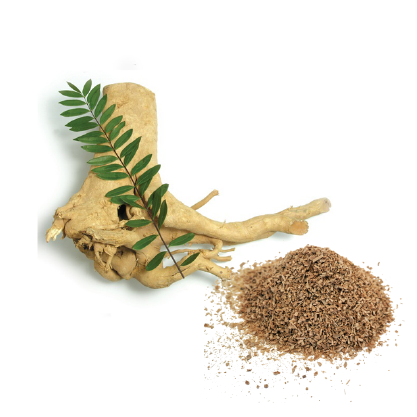Do You Lose Testosterone When You Ejaculate? Myths, Facts, and What Really Matters
- Muhd. Hanis
- Oct 9
- 4 min read
Testosterone plays a central role in men’s health — from muscle growth and energy levels to mood, libido, and overall vitality. Because of its importance, many men are naturally concerned about anything that might lower testosterone. One common question is: do you lose testosterone when you ejaculate?
This question has been debated for decades, often fueled by myths, half-truths, and conflicting advice online. Let’s dive into the science, separate myth from fact, and explore what really matters for your hormones, health, and daily lifestyle.

The Myth: Ejaculation Depletes Testosterone
For centuries, different cultures believed that sexual activity — especially frequent ejaculation — could “drain” men of their life force or weaken their masculinity. Some even thought that abstaining from sex for long periods could increase strength, focus, and testosterone levels.
While these ideas sound convincing at first, they don’t hold up well when studied scientifically. Modern research shows that ejaculation doesn’t cause a permanent loss of testosterone, nor does it make men weaker in the long run.
What Science Actually Says
Several studies have directly looked into the relationship between ejaculation and testosterone levels. Here’s what researchers found:
No Long-Term Drop– Normal sexual activity, including regular ejaculation, does not reduce baseline testosterone levels. Your body continues to produce testosterone at its natural rate regardless of whether you ejaculate frequently or abstain.
Temporary Hormonal Changes– Some small fluctuations may occur right after sex or ejaculation. For example, a short-term spike in prolactin (a hormone related to relaxation after orgasm) can briefly reduce sexual arousal. However, this has no lasting impact on testosterone production.
The 7-Day Abstinence Study– A well-known study found that men who abstained from ejaculation for 7 days experienced a temporary increase in testosterone around day 7, followed by a return to normal levels. This suggests that while short-term fluctuations are possible, they are not permanent changes.
Lifestyle Factors Matter More– Diet, sleep, exercise, stress, and aging have far greater influence on testosterone levels than ejaculation ever could.
Key takeaway: The answer to “do you lose testosterone when you ejaculate” is no — not in any lasting way.
Ejaculation and Energy Levels
Many men report feeling temporarily tired or less motivated after sex. This isn’t because testosterone is lost — instead, it’s linked to:
Oxytocin and Prolactin Release: These “relaxation hormones” naturally rise after ejaculation, making you feel sleepy or calm.
Energy Expenditure: Sex is physical activity, and like any workout, it can leave you pleasantly tired afterward.
This short-term dip in energy is normal and healthy, not a sign of testosterone loss.
How Frequency of Ejaculation Affects Men’s Health
Research shows that ejaculation frequency doesn’t harm testosterone production. In fact, there may be benefits to maintaining a healthy sex life:
Prostate Health: Studies suggest that men who ejaculate regularly may reduce their risk of prostate problems.
Stress Relief: Sexual activity lowers stress hormones like cortisol, which indirectly helps testosterone stay balanced.
Mood and Confidence: Regular sexual activity can improve mood, intimacy, and overall mental well-being.
Factors That Actually Lower Testosterone
If you’re worried about testosterone levels, focus on the real culprits:
Poor Sleep – Lack of quality sleep is one of the fastest ways to reduce testosterone.
Chronic Stress – High cortisol (stress hormone) suppresses testosterone production.
Sedentary Lifestyle – Lack of exercise, especially resistance training, contributes to lower levels.
Unhealthy Diet – Excess sugar, processed foods, and too much alcohol can all reduce testosterone.
Aging – Natural decline begins around age 30, but lifestyle can slow the process.
Compared to these factors, ejaculation has little to no long-term effect.
Natural Ways to Support Testosterone
If you want to keep testosterone strong, consider these science-backed habits:
Strength Training: Weightlifting and high-intensity workouts boost testosterone naturally.
Adequate Sleep: Aim for 7–9 hours of deep, restorative sleep.
Stress Management: Meditation, breathing exercises, or outdoor walks help keep cortisol down.
Balanced Nutrition: Prioritize lean protein, healthy fats, zinc, and vitamin D.
Herbal Support: Natural herbs like maca root, tongkat ali, and ginseng have been studied for their role in supporting vitality, libido, and hormonal health.
Myths vs. Facts About Ejaculation and Testosterone
The Bottom Line : Do You Lose Testosterone When You Ejaculate?
The answer is no — ejaculation does not lower your long-term testosterone levels. Any changes are short-lived and not significant enough to impact your health, energy, or masculinity. What really determines testosterone health is your overall lifestyle: sleep, diet, exercise, stress, and age.
Instead of worrying about whether sex or masturbation reduces testosterone, focus on building habits that naturally keep your hormones strong. A balanced lifestyle, combined with natural support from herbs like maca root and tongkat ali, is far more effective than avoiding ejaculation.



Comments